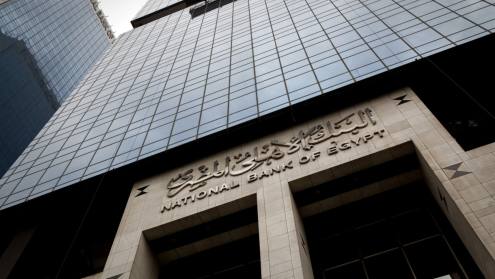The management of new technology has been the key to the successful integration of Nigerian banks brought together in the consolidation process. For some banks, new suppliers were brought in to provide completely new platforms, so that all banks started from the same base. For others, one bank’s platform was adopted and other banks’ systems were migrated to the established platform. In either case, staff training was required and heavy costs incurred to bring technology up to speed quickly and efficiently.
The predominant system to be adopted by the local banks is Finacle, whose provider Infosys has a significant presence in Nigeria. Nigerian bankers see comparisons between the changes happening in Nigeria and those that have occurred in India, where Infosys is based, and where many of its systems have been installed.
Technology migration
Okey Nwosu, managing director of First Inland Bank, describes his bank’s adoption of the Finacle software: “The integration process wasn’t easy. We used the Finacle software supported by Infosys as our platform. Finacle already served as the platform for one of the banks acquired by First Inland and all the other banks migrated onto their software.
“A lot of challenges came out of the technology process but key was the different levels of development of the various banks we were integrating. Bringing them all to a certain level so that we could ensure we had a real-time, online operation required a lot of investment in communications.”
Reginald Ihejiahi, managing director of Fidelity Bank, likewise assesses the key role of the software platform. “There have been challenges in terms of technology, in terms of building a wide area network. Nigerian banking is quite advanced in terms of front-end customer services. To support that at the back end has required some technological development. Most Nigerian banks have technology to allow a customer to go to most branches and conduct transactions, so you don’t need to go to your branch of domicile.
“GSM mobile phone banking as well as internet banking are coming in and this has defined the consolidation. Consolidation has given Nigerian banks greater access to opportunity.”
Platform streamlining
The development of a single platform was top of the agenda at FCMB, as it sought to pull together several banks with different technological needs and customer profiles. Ladipupo Balogun, FCMB’s managing director, says: “We needed to put everybody [on the] same technology platform. Today, all banks are integrated on the same ledger, on the same core banking application, and that was done fairly smoothly.”
FCMB is another user of the Finacle platform, and Mr Balogun says this fits well with the needs of a bank in the emerging markets that is seeking to upgrade its technology platform with a view to expansion. “Emerging market banks in India, Africa and the Middle East tend to use applications that are almost off-the-shelf with some customisation.
“Finacle is used by the leading Indian and Nigerian banks. It is a very robust application in terms of product development and time to market. The software makes it easy to customise your products. Because it has an open platform, it is fairly easy to bolt on other banks quickly.
“The process of consolidation was a lot easier for us because we were using an acquisition-friendly technology platform, which we had anticipated. We had migrated to that platform, prior to the acquisition.”
Integration of constituent banks was the challenge facing Barth Ebong, managing director of Union Bank, as he sought to put together the expanded Union Bank. “Integration threw up some different dimensions. We had the challenge of integrating the information technology. One of the banks with which we integrated was using the same software [as us], but it hadn’t reached the same grade. So we had to work out a way of bringing them together. It took us about a year to get that sorted. But in the end, they were integrated satisfactorily.”
Access Bank had anticipated some of the technology challenges in advance of consolidation. Its system is provided by Flexcube, a product of Indian company i-flex. Access CEO Aigboje Aig-Imoukhuede says: “Because we anticipated mergers and acquisitions, we had already put in place a technology platform with a bank of our size in mind. Part of the process of business integration was intended to ensure that we could consolidate the banks onto our platform.
“We ran a program that allowed us to migrate customer data onto our system. We maintained a 10-year history of the two other legacy banks we had acquired. This meant that former customers of Capital Bank [one of the Access legacy banks] would find a pop-up showing their balance on an Access bank statement. The transition was seamless.”
Another user of Flexcube is Intercontinental Bank. Managing director Erastus Akingbola says that “cutting edge IT infrastructure is one of the bank’s strong points”. Intercontinental’s 200-strong branch network is linked with a platform that ensures it can provide real-time services. “The bank recently acquired and installed the latest version of the Flexcube software,” says Mr Akingbola. “This ensures the bank works with a robust, flexible and versatile electronic system, across many channels.” Flexcube is also used by Skye Bank, says managing director Akinsola Akinfemiwa. The system had been used by its legacy bank, Prudent Bank, and was adopted by the consolidated Skye banking group.
The third software provider of note in the Nigerian banking system is Equinox. This has been adopted by PlatinumHabib Bank (PHB). Equinox had been used by Platinum prior to the merger, and the Habib Bank branches were subsequently migrated onto the system. The bank says that “all the staff that had to work on the new software. IT, internal control and operation have been given training to understand how Equinox works.”
The expansion of internal infrastructure and software platforms at Nigerian banks has coincided with the rapid development of electronic and phone banking products. Banks have sought to develop software and linking systems for making payments across the GSM mobile phone system. First Inland Bank’s Mr Nwosu says: “A Nigerian can make payment to anyone in any part of the world. We want to make it more robust and ensure the card product will converge with GSM usage. We use Java technology as software for GSM usage. We are changing the [population’s] culture. We get $20m going through the GSM every month and soon we will be talking about several hundreds of millions of dollars in transactions. However, there are security considerations and we restrict any single transaction on GSM to N200,000 ($1563) unless there is a prior arrangement.”
Mobile banking
The GSM network is also used by Oceanic International as a structure for linking branches, says Cecilia Ibru, the managing director. “There are structures in almost every town where you can use GSM to have a link. This enables branches to link up with headquarters on a constant basis. We are spending a lot of money on this infrastructure. GSM can give us effective and secure links. This is so important because we have confidential customer data where access needs to be restricted.
“The critical thing is that we have the ability to deliver service through the internal network and ensure that the customer is not kept waiting unduly. The consolidation has meant we have the money to [advance] our [technology] and ultimately improve efficiency and our product range.”











